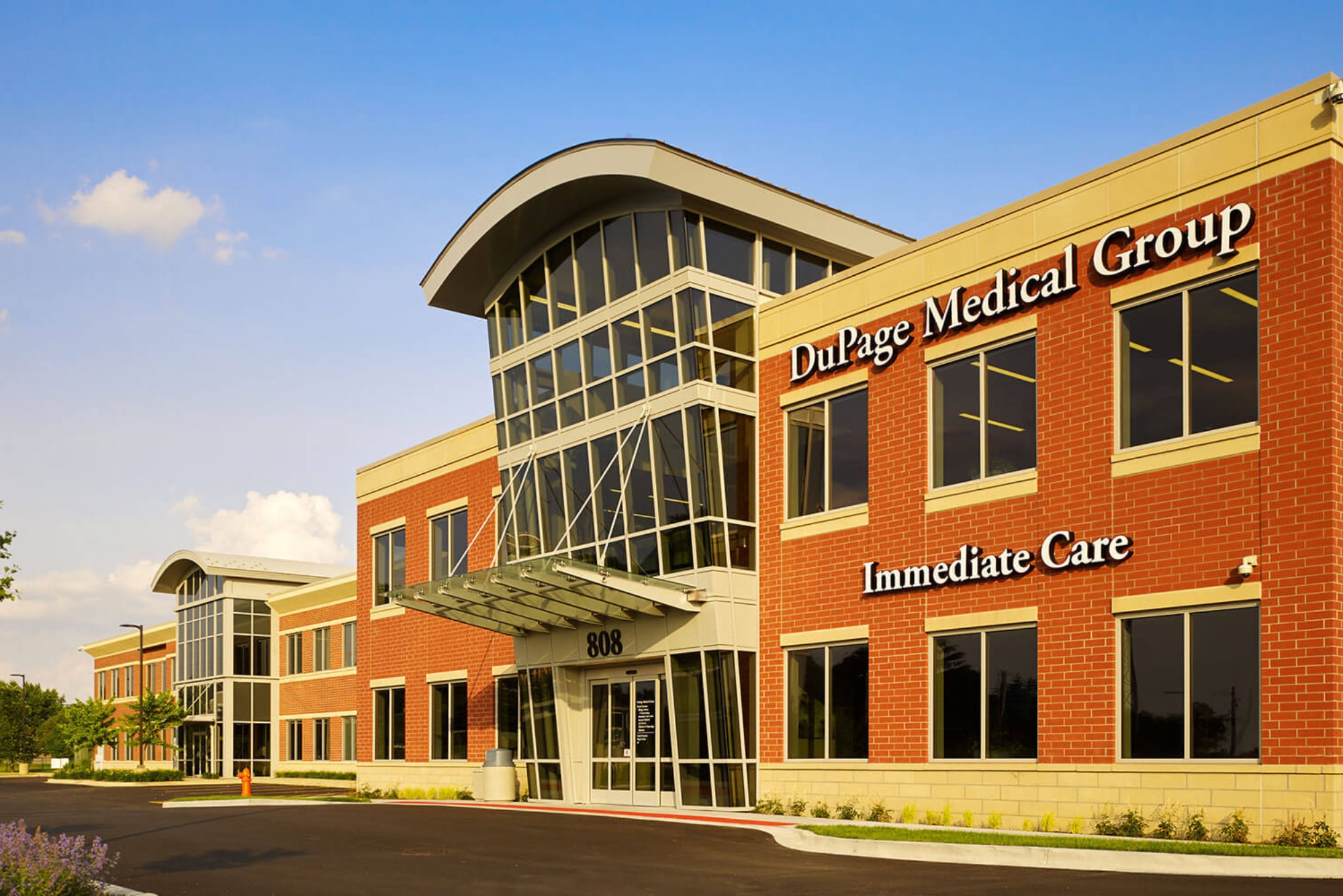Table of Contents
ToggleDiscover the Reasons Behind Doctor Turnover at DuPage Medical Group
Why Are Doctors Leaving DuPage Medical Group? In recent years, DuPage Medical Group (DMG), one of the largest multi-specialty physician groups in the Chicagoland area, has been experiencing a notable departure of its doctors. This exodus has raised concerns within the community and among patients who rely on the group for their healthcare needs. Understanding the reasons behind this trend is crucial for both patients and the healthcare industry at large.
Explore the factors contributing to the departure of doctors from DuPage Medical Group (DMG) and the impact on patients and the community. Learn about work environment challenges, financial considerations, career development opportunities, and strategies to address this issue for enhanced healthcare delivery.
Reasons behind Doctors Leaving
Several factors contribute to the decision of doctors to leave DMG. Among them are concerns regarding work environment, financial considerations, career development opportunities, work-life balance, and communication issues.
The departure of doctors from DMG can have significant implications for patients and the broader community. It may lead to reduced access to medical care, longer wait times for appointments, and decreased continuity of care, ultimately affecting patient outcomes and satisfaction levels.
Work Environment
- Culture and Atmosphere
The organizational culture and workplace atmosphere play a crucial role in retaining medical professionals. Doctors may leave DMG due to dissatisfaction with the prevailing work culture or interpersonal dynamics within the organization.
- Management Policies
The policies and practices implemented by DMG’s management can influence doctor retention. Issues such as administrative burdens, lack of autonomy, and ineffective leadership may contribute to doctors seeking opportunities elsewhere.
Financial Considerations
- Compensation Packages
Competitive compensation packages are essential for retaining top talent. Doctors may leave DMG if they perceive their salaries and benefits to be inadequate compared to other healthcare organizations.
Profit-Sharing Models
The structure of profit-sharing arrangements within DMG can impact doctor retention. If doctors feel that their contributions are not adequately recognized or rewarded, they may be more inclined to explore alternative employment opportunities.
Career Development
- Opportunities for Growth
Professional growth and development opportunities are crucial for keeping doctors engaged and motivated. DMG must provide avenues for career advancement, specialized training programs, and mentorship opportunities to retain its medical staff.
- Continuing Education Support
Supporting doctors in pursuing continuing education and maintaining board certifications is essential for their professional development. DMG should invest in educational resources and reimbursement programs to help doctors stay current in their respective fields.
Work-Life Balance
- Flexible Scheduling
Balancing work responsibilities with personal commitments is vital for doctors’ overall well-being. DMG should offer flexible scheduling options and adequate time off to allow doctors to recharge and maintain a healthy work-life balance.
- Stress Management Resources
The demanding nature of medical practice can take a toll on doctors’ mental and emotional health. DMG should prioritize the provision of stress management resources, counseling services, and wellness programs to support its medical staff.
Communication and Collaboration
- Doctor-Patient Relationships
Effective communication and rapport-building are essential for fostering strong doctor-patient relationships. Doctors may leave DMG if they feel constrained in their ability to connect with patients or deliver personalized care.
- Interdisciplinary Teamwork
Collaboration among healthcare professionals is critical for delivering comprehensive patient care. DMG should promote interdisciplinary teamwork and facilitate communication channels between doctors, nurses, and other staff members.
DuPage Medical Group Locations Comprehensive Healthcare Across Chicagoland
Certainly! DuPage Medical Group (DMG) operates multiple locations across the Chicagoland area. While the exact number and specific addresses of these locations may vary, DMG’s clinics and facilities can typically be found in various suburbs of Chicago, including but not limited to:
| Location |
|---|
| Naperville |
| Downers Grove |
| Wheaton |
| Lombard |
| Hinsdale |
| Elmhurst |
| Oak Brook |
| Glen Ellyn |
| Bolingbrook |
| Plainfield |
These locations serve a wide range of medical specialties and offer comprehensive healthcare services to patients in the surrounding communities. Additionally, DMG may have partnerships or affiliations with hospitals and healthcare institutions in the area to provide integrated care to patients. For the most accurate and up-to-date information on DMG’s locations, it’s recommended to visit their official website or contact their customer service.
Alternative Perspectives
- Insights from Departing Doctors
Gaining insights from doctors who have chosen to leave DMG can provide valuable perspectives on areas for improvement within the organization. Conducting exit interviews and soliciting feedback can help identify underlying issues and inform strategic decision-making.
- Feedback from Current Staff
Engaging with current medical staff to understand their concerns and suggestions is essential for fostering a positive work environment. DMG should actively solicit feedback through surveys, focus groups, and open-door policies to address issues in real-time.
Community Perception
- Public Trust and Confidence
Maintaining public trust and confidence is paramount for healthcare organizations like DMG. Any perception of instability or dissatisfaction among doctors can erode trust in the group’s ability to provide quality care.
- Patient Satisfaction Rates
Patient satisfaction is a key metric for evaluating the performance of healthcare providers. DMG should monitor patient feedback and satisfaction scores to gauge the impact of doctor turnover on the overall patient experience.
Impact on Healthcare Services
- Availability of Medical Care
Doctor turnover can affect the availability and accessibility of medical services within DMG’s network. Patients may experience difficulty scheduling appointments or accessing specialty care, particularly in high-demand areas.
- Potential Strain on Resources
A significant exodus of doctors can strain DMG’s resources and infrastructure. The organization may face challenges in recruiting replacement physicians, redistributing patient caseloads, and maintaining service quality across all locations.
Some of the Biggest Reason Duly Health And Care In Financial Trouble
Is Duly Health And Care In Financial Trouble? Duly Health and Care may face financial challenges due to factors such as changes in reimbursement rates, increasing healthcare costs, or shifts in patient volume.
Additionally, the healthcare industry as a whole has experienced significant disruptions, particularly in recent years with the COVID-19 pandemic, which may have impacted the financial stability of some providers.
It’s essential for Duly Health and Care to carefully monitor its financial health, adapt to industry changes, and implement strategic measures to ensure its long-term sustainability and continued provision of quality care to its patients.
Recruitment Strategies
- Attracting New Talent
Implementing effective recruitment strategies is essential for replenishing DMG’s medical staff. The organization should leverage its reputation, networking opportunities, and competitive incentives to attract qualified candidates.
- Retaining Existing Staff
In addition to recruiting new talent, DMG must prioritize efforts to retain its existing medical staff. This includes addressing the root causes of doctor dissatisfaction, enhancing workplace support systems, and fostering a culture of appreciation and recognition.
Administrative Changes
- Reevaluating Policies and Procedures
Periodically reviewing and updating administrative policies and procedures can help address systemic issues within DMG. This may involve streamlining workflows, reducing bureaucratic barriers, and enhancing communication channels.
- Addressing Concerns Proactively
Dupage Medical Group Immediate Care Appointment addressing doctors’ concerns and grievances can prevent further attrition within DMG. Management should demonstrate a willingness to listen, collaborate, and implement meaningful changes based on feedback from medical staff.
Future Outlook
- Predictions for the Healthcare Industry
The healthcare industry is constantly evolving, and DMG must adapt to remain competitive. Predictions for the future include increased emphasis on telemedicine, value-based care models, and patient-centered approaches to healthcare delivery.
- Long-Term Solutions
Developing sustainable, long-term solutions to address doctor turnover is essential for DMG’s continued success. This may involve investing in employee wellness initiatives, improving work-life balance policies, and fostering a culture of transparency and open communication.
FAQs
What happened to DuPage Medical?
Dupage Medical Group Immediate Care (DMG) is a large multi-specialty physician group in the Chicagoland area. As of my last update, there haven’t been any significant reports of any major events affecting DuPage Medical Group. However, it’s worth noting that like any organization, DMG may undergo operational changes, expansions, or mergers over time.
Why is DuPage Medical changing their name?
There haven’t been any reports indicating that DuPage Medical Group is changing its name. However, organizations may sometimes rebrand to better reflect their mission, values, or services, or to differentiate themselves in the market.
Why are doctors leaving Illinois?
Doctors may be leaving Illinois for various reasons. Common factors include better job opportunities elsewhere, dissatisfaction with working conditions, higher taxes or living costs in Illinois, or personal reasons such as family relocation. Additionally, some doctors may choose to practice in states with more favorable medical malpractice laws or better healthcare infrastructure.
Who owns DuPage Medical?
DuPage Medical Group is physician-owned, meaning that the doctors who work within the group also have ownership stakes in the organization. This model allows physicians to have a greater say in the management and operations of the group, potentially leading to more physician-centered decision-making. However, specific details about the ownership structure of DuPage Medical Group may vary and are subject to change.












